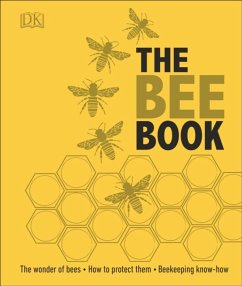
Capitalist Agriculture and the Global Bee Crisis
Versandkostenfrei!
Versandfertig in 1-2 Wochen
56,99 €
inkl. MwSt.
Weitere Ausgaben:

PAYBACK Punkte
28 °P sammeln!
Capitalist agriculture relies heavily on the pollination work of bees, but this system harms bees in innumerable ways. This book presents a political ecology of pollination that critically examines how managed honey bees and wild bees are harmed by capitalist agriculture.














